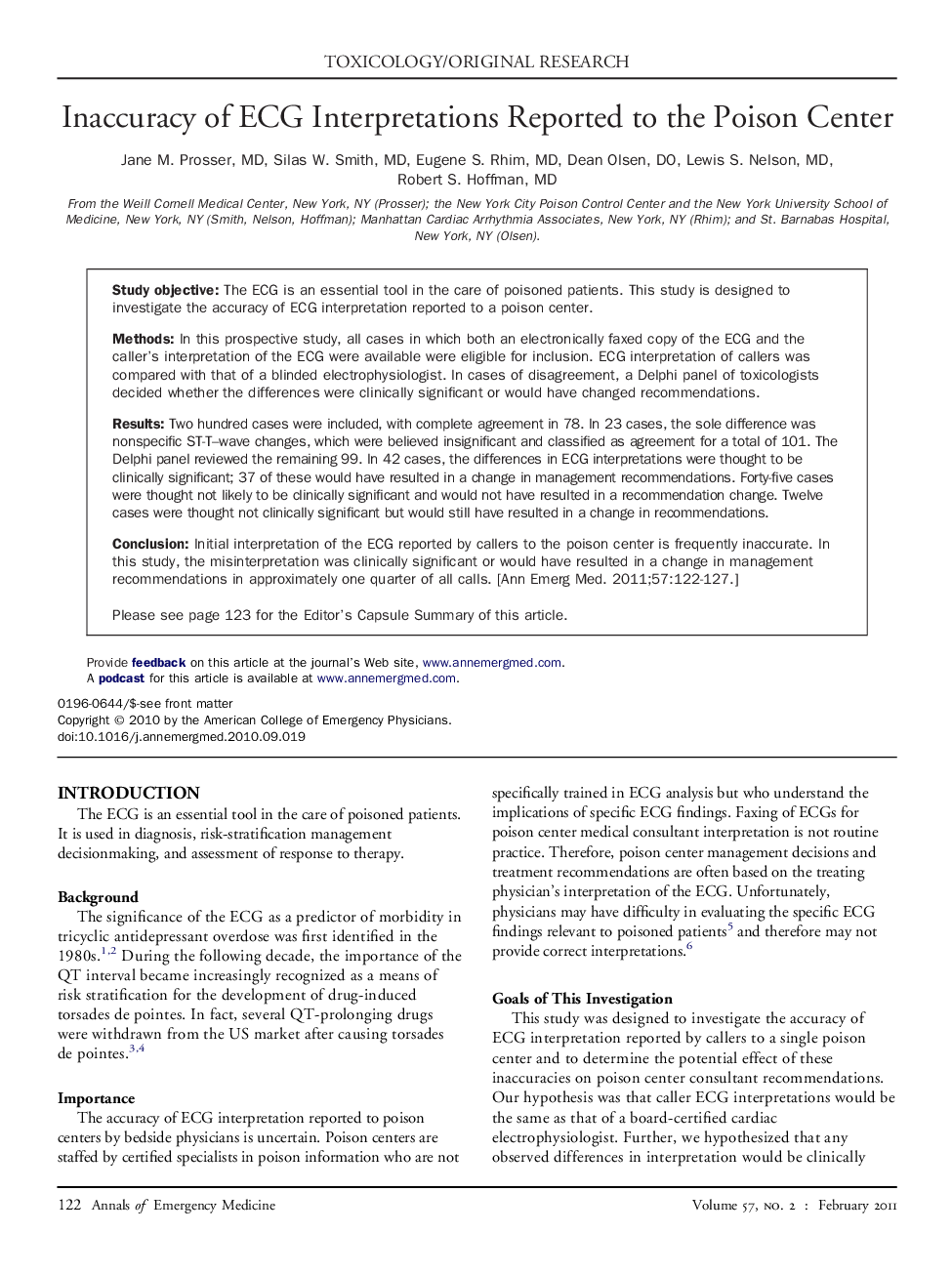| Article ID | Journal | Published Year | Pages | File Type |
|---|---|---|---|---|
| 3231061 | Annals of Emergency Medicine | 2011 | 6 Pages |
Study objectiveThe ECG is an essential tool in the care of poisoned patients. This study is designed to investigate the accuracy of ECG interpretation reported to a poison center.MethodsIn this prospective study, all cases in which both an electronically faxed copy of the ECG and the caller's interpretation of the ECG were available were eligible for inclusion. ECG interpretation of callers was compared with that of a blinded electrophysiologist. In cases of disagreement, a Delphi panel of toxicologists decided whether the differences were clinically significant or would have changed recommendations.ResultsTwo hundred cases were included, with complete agreement in 78. In 23 cases, the sole difference was nonspecific ST-T–wave changes, which were believed insignificant and classified as agreement for a total of 101. The Delphi panel reviewed the remaining 99. In 42 cases, the differences in ECG interpretations were thought to be clinically significant; 37 of these would have resulted in a change in management recommendations. Forty-five cases were thought not likely to be clinically significant and would not have resulted in a recommendation change. Twelve cases were thought not clinically significant but would still have resulted in a change in recommendations.ConclusionInitial interpretation of the ECG reported by callers to the poison center is frequently inaccurate. In this study, the misinterpretation was clinically significant or would have resulted in a change in management recommendations in approximately one quarter of all calls.
